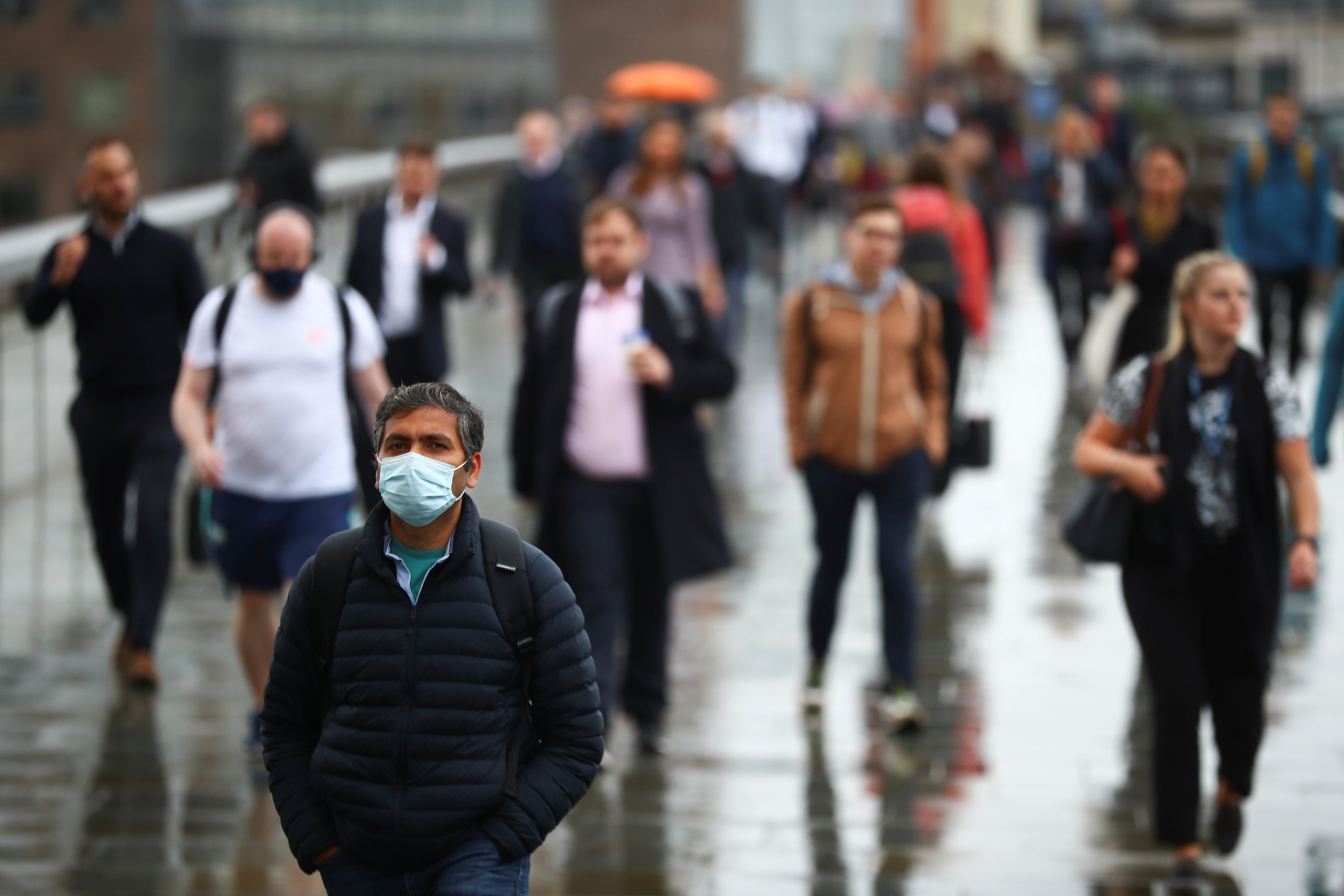Covid: UK ‘very close to herd immunity’ as antibodies estimated in 90% of adults
Public Health England expert says country ‘very close’ to reaching critical level of protection
Your support helps us to tell the story
From reproductive rights to climate change to Big Tech, The Independent is on the ground when the story is developing. Whether it's investigating the financials of Elon Musk's pro-Trump PAC or producing our latest documentary, 'The A Word', which shines a light on the American women fighting for reproductive rights, we know how important it is to parse out the facts from the messaging.
At such a critical moment in US history, we need reporters on the ground. Your donation allows us to keep sending journalists to speak to both sides of the story.
The Independent is trusted by Americans across the entire political spectrum. And unlike many other quality news outlets, we choose not to lock Americans out of our reporting and analysis with paywalls. We believe quality journalism should be available to everyone, paid for by those who can afford it.
Your support makes all the difference.Around nine in 10 adults in the UK are estimated to have Covid antibodies, new figures suggest.
The Office for National Statistics said that in England, 89.8 per cent of the adult population would be likely to have tested positive for antibodies against coronavirus in the week beginning 14 June – suggesting they had the infection in the past or have been vaccinated. That was an increase from 79.6 per cent a month ago.
The figure stretched from 84.7 per cent in Scotland (up month on month from 71.8 per cent) to 91.8 per cent in Wales (up from 82.1 per cent). In Northern Ireland, it is estimated that 87.2 per cent of the adult population would have tested positive for antibodies, up from 80.0 per cent.
The ONS said that across all four nations of the UK, there was a “clear pattern” between vaccination and testing positive for Covid-19 antibodies, however the detection of antibodies alone was “not a precise measure of the immunity protection given by vaccination”.
The results of the survey, carried out in partnership with the University of Oxford, University of Manchester, Public Health England and Wellcome Trust, reflect the high take-up of the vaccine, with more than half of the population now fully vaccinated.

Commenting on the figures, Meaghan Kall, lead epidemiologist in Covid-19 epidemiology cell at Public Health England, said the antibody data suggested those aged 25 and over were “very close to herd immunity” through vaccination and previous infection.
Herd immunity doesn’t make any one person immune, and outbreaks can still flare up, but it means that a virus is no longer easily jumping from person to person, helping to protect those who are still vulnerable to catching it.
Nobody knows for sure what the herd immunity threshold is for the coronavirus, though experts have previously suggested it may be 70 per cent or higher.
The human body takes between two and three weeks after infection or vaccination to make enough antibodies to provide protection against the virus.
Antibodies help to prevent people from getting the same infection again, or if they do get infected, they are less likely to suffer from severe symptoms.
Once infected or vaccinated, antibodies remain in the blood at low levels and can decline over time, but the length of time antibodies remain at detectable levels in the blood is not fully known.
The latest estimates from the ONS are based on a sample of blood test results for the week beginning 14 June for people in private households and do not include settings such as hospitals and care homes.
Across England as a whole, the highest percentage of adults testing positive for antibodies were estimated to be the age groups 60 to 64, 70 to 74 and 75 to 79 (all 96.8 per cent).
The lowest percentage was for 16 to 24-year-olds (59.7 per cent).
In Wales, the highest proportion of adults likely to have tested positive for antibodies was the 70 to 74 age group (98.2 per cent), while in Scotland the highest percentage was for people aged 65 to 69 (96.8 per cent).
In Northern Ireland, the ONS uses different age groups due to small sample sizes, and estimates that 96.9 per cent of people aged 50 to 69 were likely to have tested positive for antibodies in the week beginning 14 June.
Join our commenting forum
Join thought-provoking conversations, follow other Independent readers and see their replies
Comments